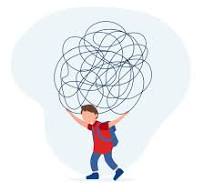Introduction
In the current digital era, technology is a vital part of our everyday lives and provides a wealth of advantages and chances for interaction, amusement, and efficiency. But controlling technology use, especially screen time, can present special difficulties for people with Attention-Deficit/Hyperactivity Disorder (ADHD). Due to the increasing accessibility of computers, tablets, smartphones, and other digital devices, people with ADHD may find it difficult to control their screen time and stay focused on their activities. This article will look at the connection between using technology and taking medicine for ADHD, how too much screen time affects the symptoms of the disorder, and some effective ways to limit screen time while still getting the most out of the drug.
Understanding ADHD Medication:
ADHD drugs are frequently recommended to treat symptoms of impulsivity, hyperactivity, and inattention. Examples of these drugs include stimulants like methylphenidate (Ritalin, Concerta) and amphetamines (Adderall, Vyvanse). These drugs function by raising the brain's concentrations of neurotransmitters like dopamine. Norepinephrine, which can enhance focus, attention, and self-control. Although taking medication can significantly lessen the symptoms of ADHD, it is not a panacea and must be used in conjunction with other management techniques.
The Impact of Technology Use on ADHD Symptoms:
A rising worry in today's society is excessive screen time, which is defined as extended use of digital gadgets including computers, smartphones, and video games. Excessive screen usage can aggravate pre-existing symptoms. Interfere with day-to-day functioning in people with ADHD, who may already struggle to control their impulsivity and concentration. Extended screen use has been linked to focus issues, sleep disruptions, and trouble controlling impulses in ADHD patients, according to research.
For people with ADHD, one of the main issues with using computers is the constant barrage of diversions and stimulation. Because of the seemingly limitless entertainment options, notifications. Social interactions offered by digital devices, people with ADHD find it challenging to maintain concentration on crucial tasks or objectives. Furthermore, the excessive stimulation induced by screens might overburden the brain's attentional systems, resulting in mental exhaustion, reduced efficiency, and heightened impulsivity.
Managing Screen Time Effectively:
It is crucial for people with ADHD to establish efficient techniques for limiting their technology use, given the potential drawbacks of excessive screen time. Medication can aid with focus and self-control, but it cannot replace good habits and self-control techniques. Observe these pointers to control your screen time:
Set clear boundaries:
Screen time can be better controlled by people with ADHD if there are explicit rules about when and how to use digital devices. This can entail designating specific "screen-free" windows of time or places in the house, including before bed or during meals.
Use technology mindfully:
Urge those who suffer from ADHD to use technology with awareness, concentrating on tasks that fit their beliefs and aspirations. This may be making goals for your screen time, such finishing a job assignment or getting in touch with friends, as opposed to idly browsing social media or playing games.
Take regular breaks:
Take regular breaks from screen time. Doing so can help you avoid mental tiredness and keep your focus and productivity high. Urge people to take brief breaks every hour to stretch, move about, and do something other than staring at screens.
Limit exposure to stimulating content:
Be careful about the kinds of internet content that people with ADHD are exposed to. Some media, including fast-paced games or films, can be very stimulating and may make symptoms worse. Urge them to look for relaxing and focus-enhancing content, like instructional podcasts or nature films.
Engage in alternative activities:
Encourage people with ADHD to investigate different hobbies that foster creativity, connection, and relaxation offline. This can include engaging in artistic, musical, or outdoor pursuits as well as in-person interactions with loved ones.
Conclusion:
ADHD medication can be a useful tool for treating impulsivity, hyperactivity. Inattention symptoms, it is not a cure-all for the problems brought on by technology use. People with ADHD can learn to effectively regulate their screen time. Reduce the negative effects of excessive technology usage on their symptoms. General well-being by forming good habits and mastering self-regulation techniques. People with ADHD can take advantage of technology without sacrificing their sense of balance. Attention in their lives if they have the correct support and techniques in place.


No comments yet